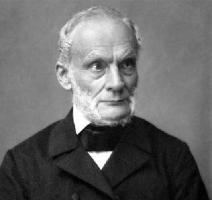Konrad Lorenz: biography and theory of the father of ethology
Konrad Lorenz, author of highly influential books on animal behavior and winner of the 1973 Nobel Prize in Physiology or Medicine, is considered one of the fathers of modern ethology, the science that analyzes the behavior of animals through the techniques of biology and psychology.
In this article we will talk about the Biography of Konrad Lorenz and his most significant theoretical contributions, especially the concept of imprinting and other key developments in the field of ethology. For this last aspect we will make a brief review of the foundation of the discipline, in which Niko Tinbergen also played a fundamental role.
- Related article: "What is Ethology and what is its object of study?"
Biography of Konrad Lorenz
Konrad Zacharias Lorenz was born in Vienna in 1903, when the city was still the capital of the Austro-Hungarian Empire. During his childhood Lorenz already showed a very intense interest in animals that would lead him to dedicate himself to zoology, with special attention to ornithology. Since he was little he had a large number of pets, some of them very unusual.
However, Lorenz's university career began with medicine; In 1928 he obtained a doctorate in this discipline, and it was not until 1933 that he finished his studies in zoology, also obtaining a doctorate in his true vocation. During this time Lorenz studied the behavior and physiology of different animals and gave influential talks on the subject.
Lorenz lived in Germany during Nazism. In this age he sympathized with Hitler's eugenic ideas and he collaborated with the regime as a psychologist, although he later tried to deny his affiliation to this movement and showed his rejection of genocide. He participated in the war as a doctor and was a prisoner of the Soviet Union between 1944 and 1948.
After being released Lorenz returned to Austria, where important positions in different institutions related to ethology, physiology and psychology were granted to him; he also founded the Max Planck Institute for Behavioral Physiology. In his later years he focused on applying his ideas to human behavior. He died in 1989 in his hometown.
- You may be interested: "History of Psychology: main authors and theories"
The foundation of ethology
In 1936 Konrad Lorenz met Niko Tinbergen, who was also an ornithologist as well as a biologist. The studies with geese that they carried out together constituted the starting point of the discipline whose foundation was He attributes to these authors: ethology, based on the scientific study of animal behavior, especially in contexts natural.
Although the contributions of authors such as Jean-Baptiste Lamarck or Charles Darwin are clear antecedents of modern ethology, this science did not begin to develop and popularize in the way in which today the we know until Lorenz and Tinbergen carried out their studies, first in Europe and later also in the United States. United.
Ethology is subordinated as a priority to biology, although it also maintains a very relevant relationship with psychology. In this sense, ethology focuses on the behavior of non-human animals, while ethology Comparative psychology is rather interested in the similarities and differences between this and that of our species.
A fundamental concept of ethology is that of fixed patterns of behavior, raised by Konrad Lorenz and his teacher Oskar Heinroth. These are instinctive and preprogrammed responses that occur in response to specific environmental stimuli; this would include, for example, the mating rituals of many types of bird.
The phenomenon of imprinting
While observing the behavior of newborn duck and goose pups, Lorenz detected extremely striking behavior: When hatched, the animals followed the first moving object they saw, regardless of whether it was their mother or not. Lorenz called this biologically prepared pattern of behavior an "imprint"..
But the influence of the imprint did not end after birth. Lorenz noticed that the young established a very close social bond with the humans they imprinted, to the point of that, once they reached maturity, they tried to mate with members of our species rather than with other birds of their own own. The imprint appeared to be irreversible.
The imprint is a phenomenon limited to a small number of species; it does not occur in all animals, not even in all birds. Nevertheless, this concept served Lorenz as the basis for his hypothesis about the fixed patterns of conduct, which have a broader character, and as the cornerstone of his contributions to ethology in general.
Lorenz's contributions on the imprint and other similar phenomena opposed the behaviorism, which rejected the role of instincts in behavior, especially in that of human beings. humans. Ethology has contributed to the understanding of the biological bases of behavior and the closeness between people and other animals.
- You may be interested: "The 10 most intelligent animals that exist"
Implications for Psychology
Konrad Lorenz's work has served to establish a relationship between zoology and the behavioral sciences. The study of the imprint, in turn, helps to understand that genetics are not usually expressed unilaterallyRather, it requires the presence of an environment "predicted" by evolution, but which does not always occur.


